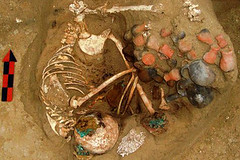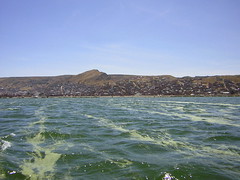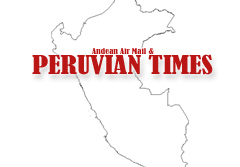Katie Kurtessis introduces us to Vichayito – a beach in northern Peru.
Category: "Piura Guide"
The other side of Máncora
The sun-baked vacation capital of northern Peru is known for its wide beaches, warm waters, great surf and popular night-life scene. But these are not its only attractions. Take a moment to explore its peaceful dry forests or the thrill of adventure activities on offer.
Piura, Mucho Gusto!
Three days of delicious flavours from Piura, as the best restaurants from this northern city, and the region, gather for the first “Perú, Mucho Gusto” gastronomic fair outside of Lima.
Tondero Piurano
The prolonged wait for spring to arrive in Lima has had me thinking of Piura, a sun-drenched paradise rich in creole culture.
The video below is of the famous Tondero dance of Piura.
Colan’s wildlife
I wouldn’t have thought there would exist such a large natural eco-system in a part of the coast that has effectively been turned into a beach resort, albeit in Colan’s case a very traditional one. It turns out that the most fascinating thing in Colán is the nature. The beach was swarming with sand crabs, the skies with various types of gulls, the sand by the water with muymuyes and various tiny shellfish, the rocks with yet another species of crab, and there were some vultures too.
Colán
Colán is a beach town popular for its picturesque seafront lined with beach houses on stilts. It has a burning sun and refreshing waters year round and is said to have the best sunsets on the Peruvian coast.
Catacaos
Located south of Piura, the town of Catacaos is a significant tourist attraction. It can be reached from Piura by taking a colectivo. These can be found by walking the streets until someone shouts “Ca’acauuuus” at you. A private taxi would cost about 7-8 soles.
Los Tallanes and the city of Narihualá
The Tallán nation was perhaps the first civilisation in the northern Peruvian region of Piura and controlled the area of the Piura and Chira rivers, and the coast. Their society was matriarchal, where the men would do the work and the women would make the decisions. They had their own gods and their own distinct language and customs. They had an economy based on fishing, farming and artisan making and monumental temples of adobe and a system of aqueducts to create fertile farm land.
Restaurante Esta Es Mi Tierra
Probably Piura’s most famous creole restaurant, this is the best place to try comida norteña or northern food in the city of Piura. Classics such as Tacu Tacu, Seco de Chavelo and Seco de Cabrito can not be missed. It’s located in Av. Las Gardenias, but you don’t need to know that. Stop any taxi in town and they’ll know where it is.
Piura
The city of Piura in the region of the same name was a pleasant surprise – I had never been here before. It was clean, vibrant and with all the shops you’d find in Lima and not to mention sunny all year-round. It’s a place I wouldn’t mind spending a lot of time in.



![Barin Bababo: Shipibo Konibo: Cosmovision of an Amazonian People [Featured]](http://farm4.static.flickr.com/3046/2690181371_9560b0c204_m.jpg)





![Novalima in London [Featured]](http://farm3.static.flickr.com/2311/1508319950_4fede310ba_m.jpg)